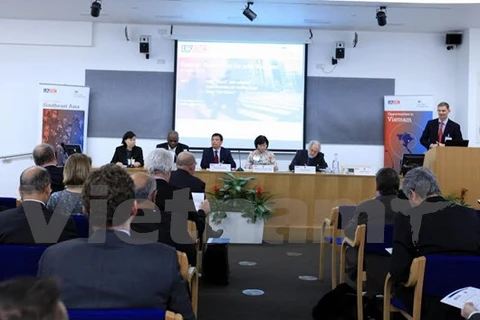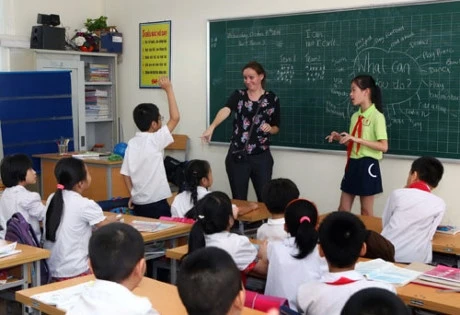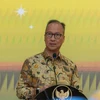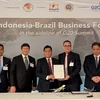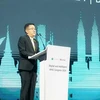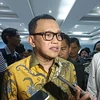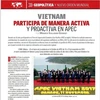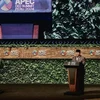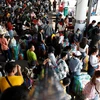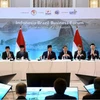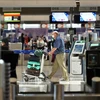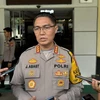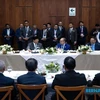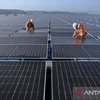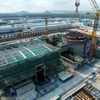 Dr Liam Fox, MP, UK Secretary of State for the Department for International Trade (Photo: GettyImages)
Dr Liam Fox, MP, UK Secretary of State for the Department for International Trade (Photo: GettyImages) Hanoi (VNA) - As the UK emerges from this period of change as a stronger, fairer, more united and more outward-looking nation, this will lead to stronger relationships between the UK and its trading partners in Southeast Asia, creating an era of even greater opportunity.
The remark was made by Dr Liam Fox, MP, UK Secretary of State for the Department for International Trade and President of the Board of Trade, in his recent article on the UK’s exit from the EU and its relations with Southeast Asian countries, including Vietnam.
The following is the full text of his article.
“There has been concern expressed by some that, on June 23, 2016, Britain voted for insularity. That, as a nation, the UK chose to surrender our place in the world and turn our back on our global relationships and commitments.
This could not be further from the truth and during my visit to the region I will be making sure that message is heard.
The UK government’s ambition is to put Britain at the centre of the argument for global free trade; and to become the world’s natural business partner. The creation of the Department for International Trade shortly after the referendum was a clear sign of the UK’s desire to be more internationally engaged than ever before.
We want to create a Global Britain and, as the UK Prime Minister has said, while this means being the best friend and neighbour to our European partners, it also means being a country that reaches beyond the borders of Europe and goes out into the world to build relationships with old friends and new allies a like.
As the Secretary of State for the Department for International Trade, I will continue to visit key trading partners around the globe to deliver the message that Britain is open for businesses and we want to trade with you.
In January this year I announced that my department has identified over 50 countries where we see a match between local need and British expertise. This is part of our renewed drive to boost investment and exports.
With its vibrant, fast-growing economies – consistent growth averaging five percent a year and a combined GDP of 2.5 trillion USD – and a commitment to build on international links, I will be using my visit to Southeast Asia as an opportunity to see and hear about the huge potential for strengthening relations with between the UK and this important region.
On my visit to the region, I will have the opportunity to visit two of Vietnam’s major cities – Ho Chi Minh City and Hanoi. A land of opportunity, Vietnam’s GDP per capita has increased by 350 percent since 1991 and now has the fastest-growing middle class in the region. With a strong interest in the UK’s world class financial services, education and training and infrastructure, there are real opportunities for the UK and Vietnam to further our trading relationship.
UK design and engineering expertise are behind the ‘Landmark 81’ project in Ho Chi Minh City which, once complete , will be the tallest building in Vietnam and UK experts have been working closely with the Vietnamese government as it looks to undertake a comprehensive reform of its curriculum and foreign language teaching system.
This demonstrates key areas where we are already working together and throughout my visit, I hope to explore how we can further build on these while also exploring new opportunities for UK-Vietnam partnerships.
While the current global climate presents challenges, these are not insurmountable. Growth in global trade is slowing so now, more than ever, Britain and our free trading allies must stand firm and make the case loudly for free trade.
After all, the benefits are well documented and in terms of prosperity, trade has freed millions of people from poverty while also driving down prices and raising the standard of living across the world.
The UK’s vote to leave the European Union has presented a once in a lifetime opportunity to create an even more open, dynamic, free trading nation that will enhance trading relationships around the world.
With infrastructure and education presenting opportunities for greater collaboration, there are significant opportunities in sectors as diverse as defence, healthcare, marine and financial technology.
For example, the Asian Development Bank has predicted the region needs to spend at least 60 billion USD a year on ensuring countries have the roads, bridges, railways and airports they need. While in the airline industry, increased global demand from passengers is resulting in new planes being ordered to service both new and existing routes. In 2016, over £3bn of orders were made for British technology, including engines, from airlines based in South East Asia.
British architecture and engineering expertise are already helping to meet the region’s infrastructure needs and I’m keen to explore what more UK businesses can do to help achieve these ambitions.
And on the education side, 2016 saw British educators invest over £200 million into expanding their presence in the region. From the early days of 2000 when the University of Nottingham was the first UK campus overseas we have come a long way and there are now nearly 20 British universities teaching in Malaysia alone.
My visit to the region is an important part of the UK’s outward looking approach to trade and investment and I look forward to meeting with governments and businesses to discuss how we can work more closely together to overcome barriers to trade and ensure globalisation acts as a force for good, spreading prosperity.
As the UK emerges from this period of change as a stronger, fairer, more united and more outward-looking nation, I hope this will lead to stronger relationships between the UK and our trading partners in South East Asia creating an era of even greater opportunity”.-VNA
The UK government’s ambition is to put Britain at the centre of the argument for global free trade; and to become the world’s natural business partner. The creation of the Department for International Trade shortly after the referendum was a clear sign of the UK’s desire to be more internationally engaged than ever before.
We want to create a Global Britain and, as the UK Prime Minister has said, while this means being the best friend and neighbour to our European partners, it also means being a country that reaches beyond the borders of Europe and goes out into the world to build relationships with old friends and new allies a like.
As the Secretary of State for the Department for International Trade, I will continue to visit key trading partners around the globe to deliver the message that Britain is open for businesses and we want to trade with you.
In January this year I announced that my department has identified over 50 countries where we see a match between local need and British expertise. This is part of our renewed drive to boost investment and exports.
With its vibrant, fast-growing economies – consistent growth averaging five percent a year and a combined GDP of 2.5 trillion USD – and a commitment to build on international links, I will be using my visit to Southeast Asia as an opportunity to see and hear about the huge potential for strengthening relations with between the UK and this important region.
On my visit to the region, I will have the opportunity to visit two of Vietnam’s major cities – Ho Chi Minh City and Hanoi. A land of opportunity, Vietnam’s GDP per capita has increased by 350 percent since 1991 and now has the fastest-growing middle class in the region. With a strong interest in the UK’s world class financial services, education and training and infrastructure, there are real opportunities for the UK and Vietnam to further our trading relationship.
UK design and engineering expertise are behind the ‘Landmark 81’ project in Ho Chi Minh City which, once complete , will be the tallest building in Vietnam and UK experts have been working closely with the Vietnamese government as it looks to undertake a comprehensive reform of its curriculum and foreign language teaching system.
This demonstrates key areas where we are already working together and throughout my visit, I hope to explore how we can further build on these while also exploring new opportunities for UK-Vietnam partnerships.
While the current global climate presents challenges, these are not insurmountable. Growth in global trade is slowing so now, more than ever, Britain and our free trading allies must stand firm and make the case loudly for free trade.
After all, the benefits are well documented and in terms of prosperity, trade has freed millions of people from poverty while also driving down prices and raising the standard of living across the world.
The UK’s vote to leave the European Union has presented a once in a lifetime opportunity to create an even more open, dynamic, free trading nation that will enhance trading relationships around the world.
With infrastructure and education presenting opportunities for greater collaboration, there are significant opportunities in sectors as diverse as defence, healthcare, marine and financial technology.
For example, the Asian Development Bank has predicted the region needs to spend at least 60 billion USD a year on ensuring countries have the roads, bridges, railways and airports they need. While in the airline industry, increased global demand from passengers is resulting in new planes being ordered to service both new and existing routes. In 2016, over £3bn of orders were made for British technology, including engines, from airlines based in South East Asia.
British architecture and engineering expertise are already helping to meet the region’s infrastructure needs and I’m keen to explore what more UK businesses can do to help achieve these ambitions.
And on the education side, 2016 saw British educators invest over £200 million into expanding their presence in the region. From the early days of 2000 when the University of Nottingham was the first UK campus overseas we have come a long way and there are now nearly 20 British universities teaching in Malaysia alone.
My visit to the region is an important part of the UK’s outward looking approach to trade and investment and I look forward to meeting with governments and businesses to discuss how we can work more closely together to overcome barriers to trade and ensure globalisation acts as a force for good, spreading prosperity.
As the UK emerges from this period of change as a stronger, fairer, more united and more outward-looking nation, I hope this will lead to stronger relationships between the UK and our trading partners in South East Asia creating an era of even greater opportunity”.-VNA
VNA
